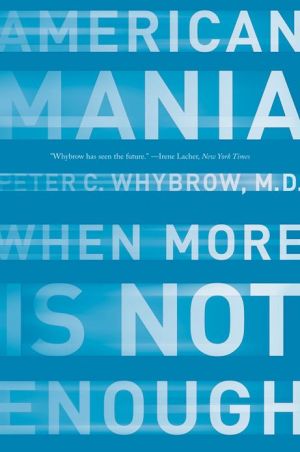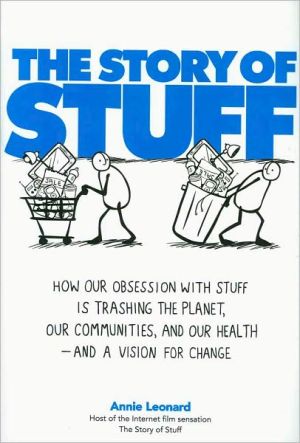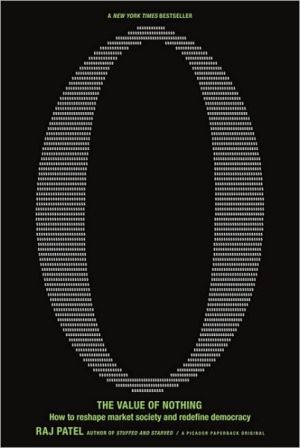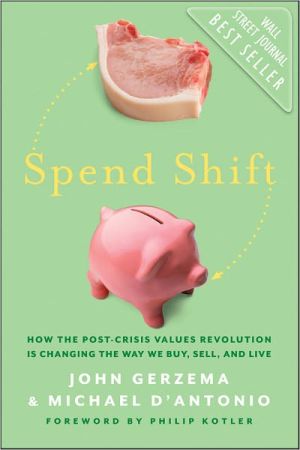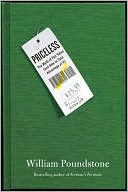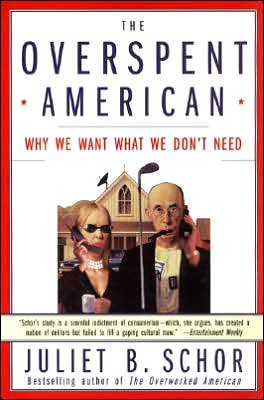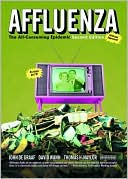American Mania: When More Is Not Enough
A doctor's bold analysis of the cultural disease that afflicts us all.\ Despite an astonishing appetite for life, more and more Americans are feeling overworked and dissatisfied. In the world's most affluent nation, epidemic rates of stress, anxiety, depression, obesity, and time urgency are now grudgingly accepted as part of everyday existence they signal the American Dream gone awry.\ Peter C. Whybrow, director of the Neuropsychiatric Institute at UCLA, grounds the extraordinary...
Search in google:
Whybrow (psychiatry and bio-behavioral science, UCLA, and director of the Neuropsychiatric Institute) analyzes the American compulsion to "shop 'til we drop," by considering the roots of American culture as a laissez-faire, competitive, free-market economy. He also connects consumerism to America's immigrant temperament and to the biology of human craving and the reward system of the brain, ultimately offering a physical explanation for the addictive mania of consumerism. He concludes with a reconsideration of prosperity and suggests that happiness is more likely found in compassion and community than in acquisition. Annotation ©2004 Book News, Inc., Portland, OR Publishers Weekly The indictment of American society offered here-that America's supercharged free-market capitalism shackles us to a treadmill of overwork and overconsumption, frays family and community ties and leaves us anxious, alienated and overweight-is familiar. What's more idiosyncratic and compelling is the author's grounding his treatise in political economy (citing everyone from Adam Smith to Thorstein Veblen) as well as in neuropsychiatry, primatology and genetics. Psychiatrist Whybrow (Mood Apart) diagnoses a form of clinical mania in which "the dopamine reward systems of the brain are... hijacked" by pleasurable frenzies like the Internet bubble. Genes are to blame: programmed to crave material rewards on the austere savanna, they go bananas in an economy of superabundance. Americans are particularly susceptible because they are descended from immigrants with a higher frequency of the "exploratory and novelty-seeking D4-7 allele" in the dopamine receptor system, which predisposes them to impulsivity and addiction. The malady is "treatable," Whybrow asserts, not with Paxil but with a vaguely defined program of communitarianism and recovery therapeutics, exemplified by his friends Peanut, a farmer rooted in the land, and Tom, a formerly manic entrepreneur who has learned to live in the present moment. Whybrow's analysis of the contemporary rat race is acute, and by medicalizing the problem he locates it in behavior and genetics-away from the arena of conventional political and economic action where more systemic solutions might surface, but toward a place where individual responsibility can turn "self-interest into social fellowship." Agent, Zoe Pagnamenta. (Jan.) Copyright 2004 Reed Business Information.
Introduction : the manic society1Ch. 1Adams Smith's American dream : of desire and debt21Ch. 2Curiosity and the promised land : of origins and opportunism49Ch. 3The freedom to strive : of risk and reward75Ch. 4America bubbles over : of globalization and greed105Ch. 5A growing burden : of appetite and abundance131Ch. 6The time trade : of clocks and competition157Ch. 7Dreams for sale : of culture and commerce185Ch. 8The roots of happiness : of compassion and community211Ch. 9Finding balance in the age of the merchant : of self and society235
\ Publishers WeeklyThe indictment of American society offered here-that America's supercharged free-market capitalism shackles us to a treadmill of overwork and overconsumption, frays family and community ties and leaves us anxious, alienated and overweight-is familiar. What's more idiosyncratic and compelling is the author's grounding his treatise in political economy (citing everyone from Adam Smith to Thorstein Veblen) as well as in neuropsychiatry, primatology and genetics. Psychiatrist Whybrow (Mood Apart) diagnoses a form of clinical mania in which "the dopamine reward systems of the brain are... hijacked" by pleasurable frenzies like the Internet bubble. Genes are to blame: programmed to crave material rewards on the austere savanna, they go bananas in an economy of superabundance. Americans are particularly susceptible because they are descended from immigrants with a higher frequency of the "exploratory and novelty-seeking D4-7 allele" in the dopamine receptor system, which predisposes them to impulsivity and addiction. The malady is "treatable," Whybrow asserts, not with Paxil but with a vaguely defined program of communitarianism and recovery therapeutics, exemplified by his friends Peanut, a farmer rooted in the land, and Tom, a formerly manic entrepreneur who has learned to live in the present moment. Whybrow's analysis of the contemporary rat race is acute, and by medicalizing the problem he locates it in behavior and genetics-away from the arena of conventional political and economic action where more systemic solutions might surface, but toward a place where individual responsibility can turn "self-interest into social fellowship." Agent, Zoe Pagnamenta. (Jan.) Copyright 2004 Reed Business Information.\ \ \ \ \ Kirkus ReviewsPutting the entire country on a couch, psychiatrist Whybrow suggests that our depressions and dysfunctions, not to mention the erosion of our quality of life, are largely the result of runaway greed. Are global corporations, heirs to Adam Smith's free-market economy, driving Americans up the wall by satisfying desires only to create and intensify further desires in a workaholic nation? As individuals, we vastly out-labor the Europeans and Japanese; they, in turn, out-vacation us. We've heard all this before, but Whybrow (Psychiatry and Biobehavioral Sciences/David Geffen School of Medicine; director, Neuropsychiatric Inst./UCLA) offers a behavioral case, replete with biochemical and neurological underpinnings, to argue that it's not completely our fault. Unlike the authors of the upcoming Nation of Rebels , he doesn't find any culture vs. counterculture shift, but posits America as an inherent "migrant culture," self-selected by the unique nature of its founding on immigrant accretion for inability to perform a reality check against our manic pursuit of material wealth and its attendant status. Research on primates, the author relates with appropriate clinical gravity, shows that those individuals most likely to abandon the home troop for a fresh crack at survival and a status upgrade (scientists call it "dispersal") have a slightly different brain chemistry than stay-at-homes and thus are predisposed to get bigger kicks from novelty, adventure, and risk-taking. A few million evolutionary years and one Statue of Liberty later, with 98 percent of us descended from families migrating to these shores within the last 300 years, here we are walking around with a special serotonin-dopamine soupin our brains: We must have that American Dream, and if it's at the mall, so be it. But if acquisition of material wealth is "a blind alley," as Whybrow believes, what to do? His suggestions are somewhat formulaic, accrued from acquaintances he finds exemplary of those able to unlearn "heroic overscheduling" and refocus on a new definition of happiness. For serious workaholics and their victims, worth considering. Agent: Michelle Tessler/Carlisle & Co.\ \
